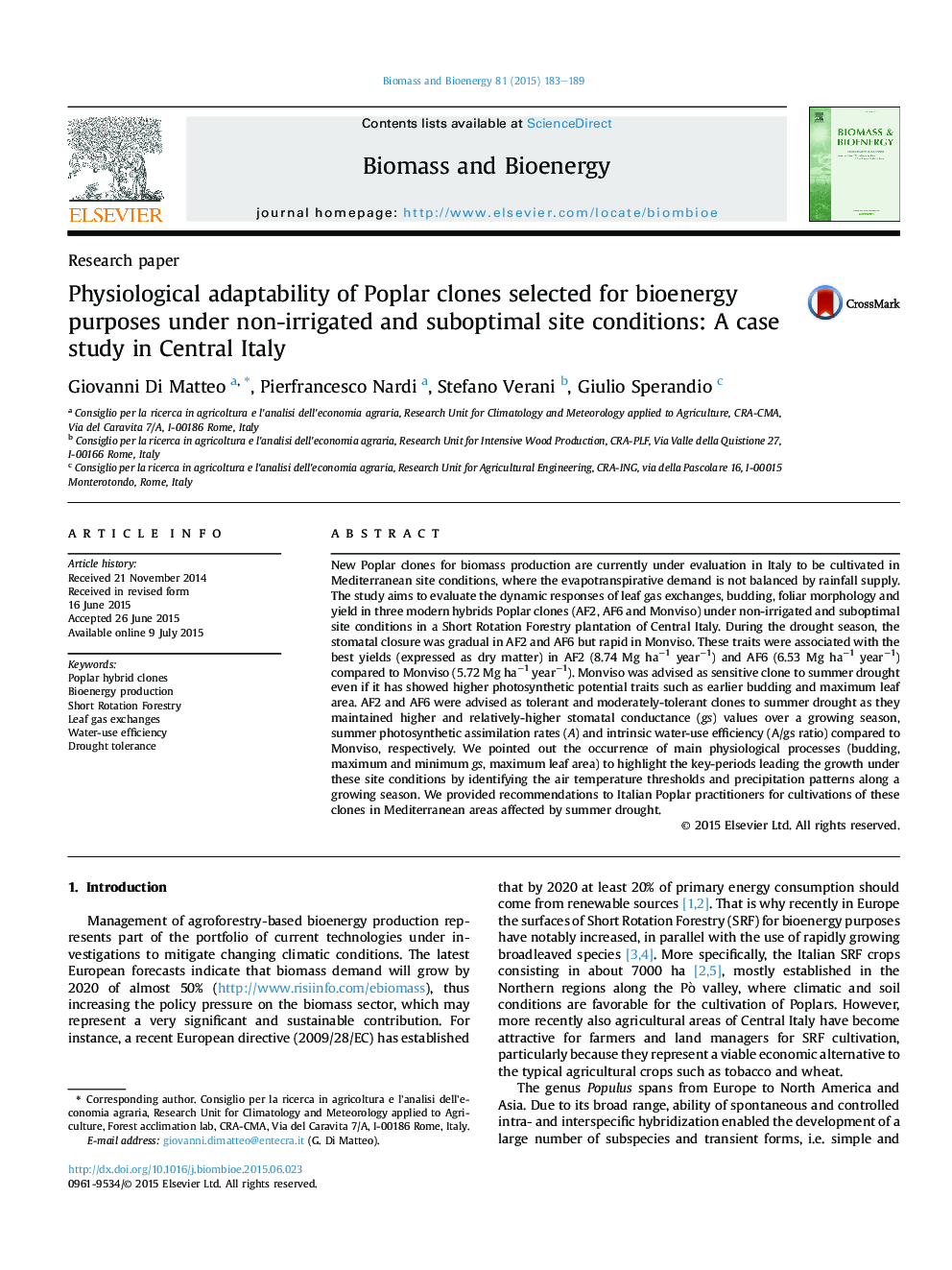| Article ID | Journal | Published Year | Pages | File Type |
|---|---|---|---|---|
| 7063769 | Biomass and Bioenergy | 2015 | 7 Pages |
Abstract
New Poplar clones for biomass production are currently under evaluation in Italy to be cultivated in Mediterranean site conditions, where the evapotranspirative demand is not balanced by rainfall supply. The study aims to evaluate the dynamic responses of leaf gas exchanges, budding, foliar morphology and yield in three modern hybrids Poplar clones (AF2, AF6 and Monviso) under non-irrigated and suboptimal site conditions in a Short Rotation Forestry plantation of Central Italy. During the drought season, the stomatal closure was gradual in AF2 and AF6 but rapid in Monviso. These traits were associated with the best yields (expressed as dry matter) in AF2 (8.74 Mg haâ1 yearâ1) and AF6 (6.53 Mg haâ1 yearâ1) compared to Monviso (5.72 Mg haâ1 yearâ1). Monviso was advised as sensitive clone to summer drought even if it has showed higher photosynthetic potential traits such as earlier budding and maximum leaf area. AF2 and AF6 were advised as tolerant and moderately-tolerant clones to summer drought as they maintained higher and relatively-higher stomatal conductance (gs) values over a growing season, summer photosynthetic assimilation rates (A) and intrinsic water-use efficiency (A/gs ratio) compared to Monviso, respectively. We pointed out the occurrence of main physiological processes (budding, maximum and minimum gs, maximum leaf area) to highlight the key-periods leading the growth under these site conditions by identifying the air temperature thresholds and precipitation patterns along a growing season. We provided recommendations to Italian Poplar practitioners for cultivations of these clones in Mediterranean areas affected by summer drought.
Keywords
Related Topics
Physical Sciences and Engineering
Chemical Engineering
Process Chemistry and Technology
Authors
Giovanni Di Matteo, Pierfrancesco Nardi, Stefano Verani, Giulio Sperandio,
